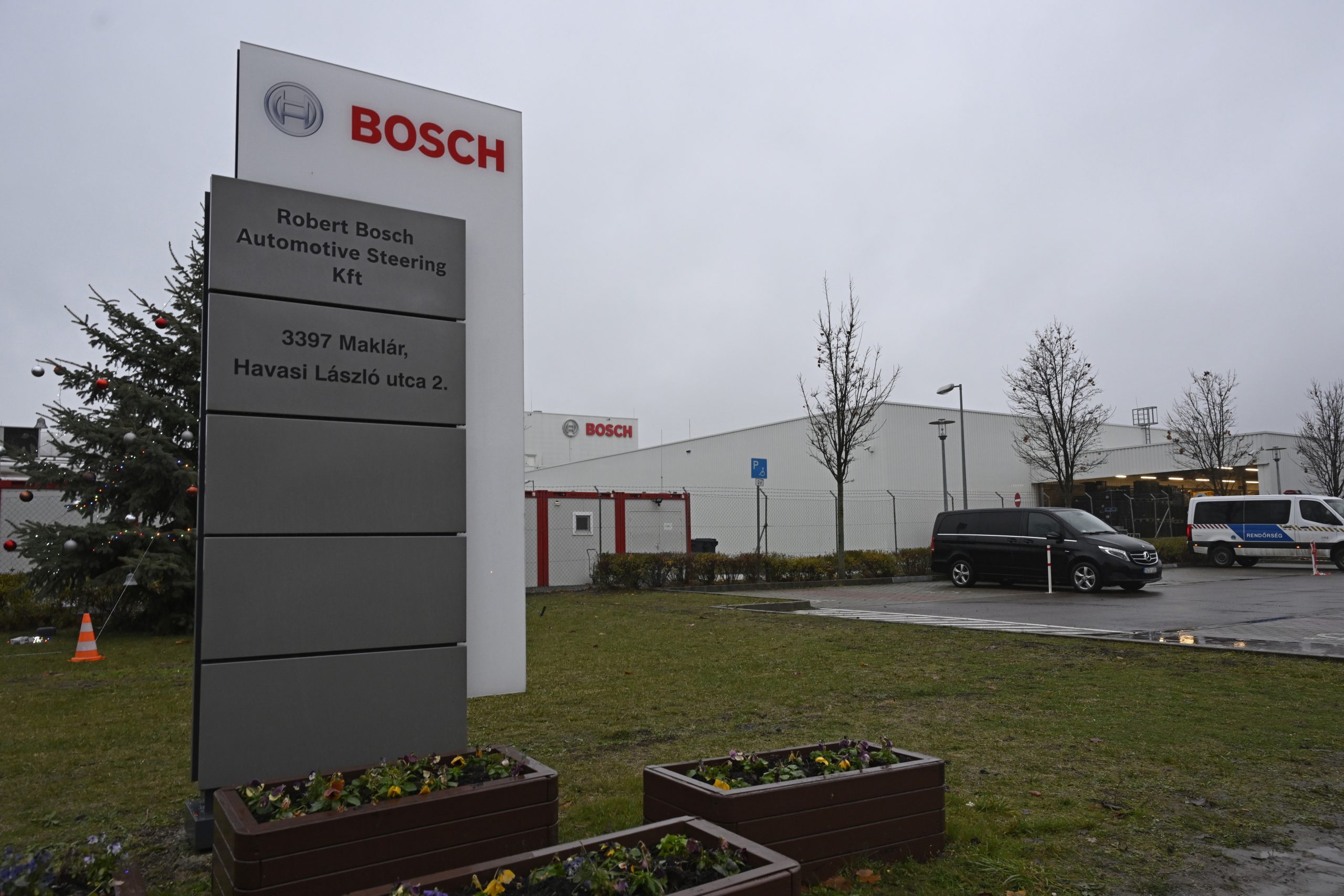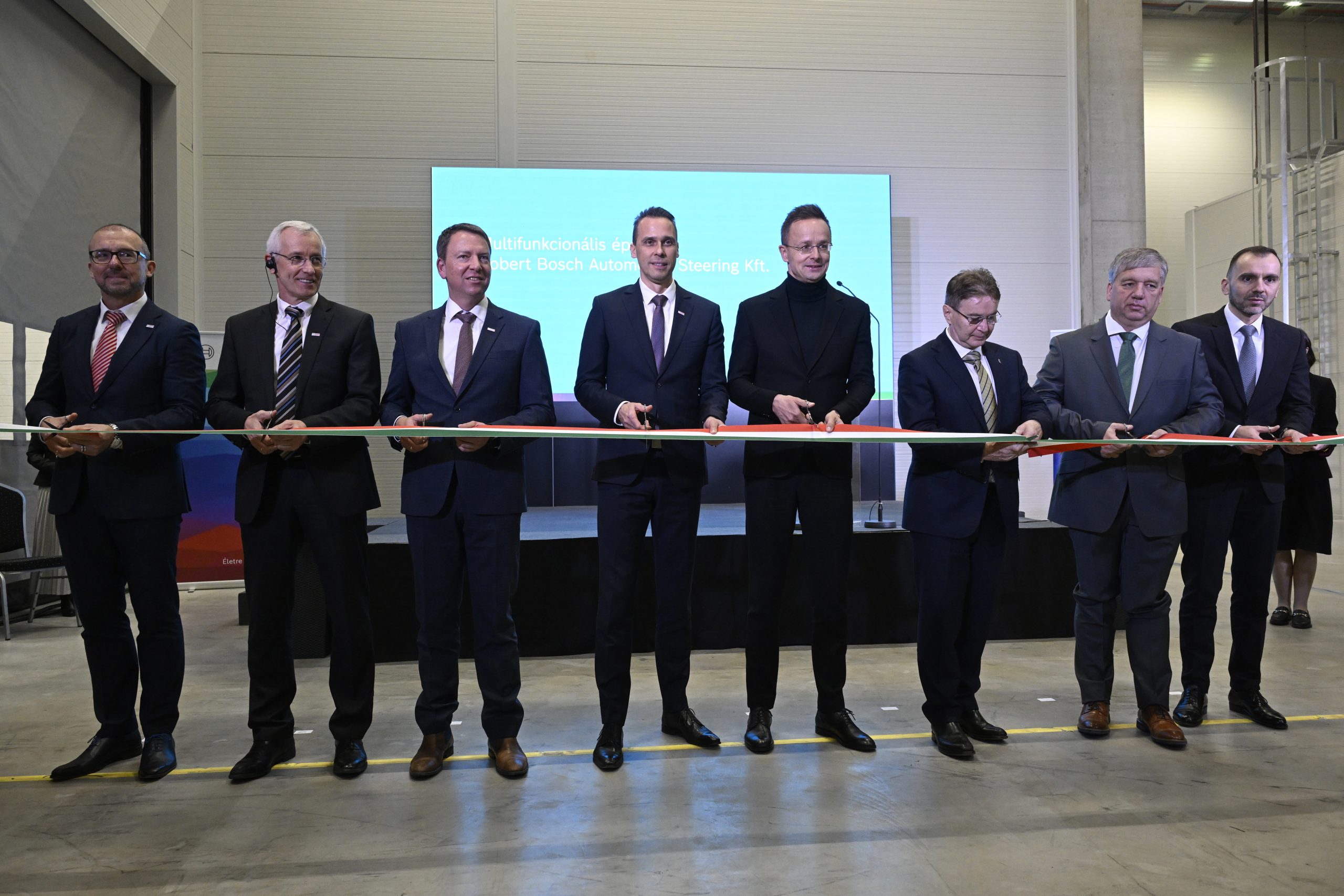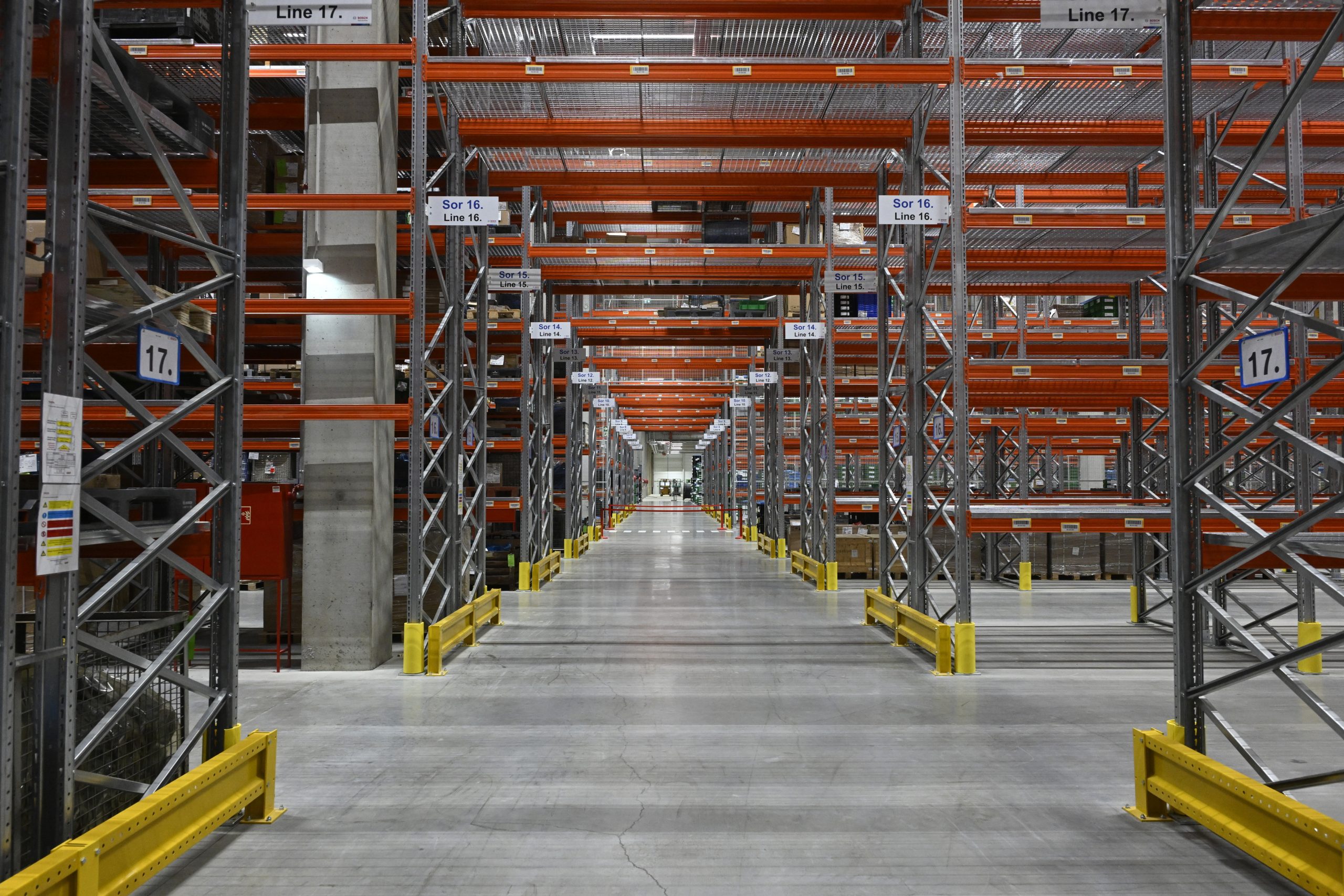
The Prime Minister believes that the Hungarian economic situation is favorable for German automotive companies.Continue reading

Hungary’s economy is set for visible growth in 2025, with significant contributions from the automotive industry. This development is largely driven by investments such as the HUF 46 billion (EUR 111.7 million) project from Bosch, creating electric steering gear at its new plant. Supported by a HUF 10.5 billion (EUR 25.5 million) state investment, the project is expected to enhance job creation in Heves County, where Bosch has already made substantial contributions to the local economy.
Minister of Foreign Affairs and Trade Péter Szijjártó noted that the company was laying another solid foundation for Hungary’s economic performance. “Another guarantee that next year we will be able to achieve tangible and visible economic growth,” he highlighted, adding that Hungary’s success is tied to its robust supplier base, especially in the electric vehicle sector.
The country is now one of only three globally where all three major German premium car brands—Mercedes, BMW, and Audi—operate factories, the politician noted. This has created a strong automotive backbone, making Hungary a key player in global car manufacturing.

Photo: MTI/Lakatos Péter
The Hungarian automotive industry’s performance is impressive, with exports accounting for 90% of total automotive exports, placing the country among the top 20 exporters worldwide.
In just 10 years, Hungary’s production value in the automotive sector has increased 3.5 times, with production exceeding 500,000 cars in 2023. These advancements are also supported by the ongoing construction of new factories by brands such as Mercedes, BMW, and BYD, further cementing Hungary’s position as a top European car producer.
Michael Zink, Managing Director of Robert Bosch Automotive Steering, said the 37,000 square meter multifunctional building is part of a series of investments at the Maklár (northern Hungary) production base since 2021, including the installation of production lines and the purchase of plant equipment in addition to the construction work.
Bosch’s investment aligns with Hungary’s strategic goals, including boosting exports, increasing added value, and enhancing environmental sustainability. The Hungarian automotive sector has thrived despite Europe’s recent economic crises, positioning itself as a clear winner in the global shift to electric vehicles.
The new hall houses the entire inbound and outbound logistics processes for steering systems for passenger cars and commercial vehicles,
the storage and dispatch of components, the storage and washing of packaging materials, and other activities supporting logistics. It also houses the production of small batches.

Photo: MTI/Lakatos Péter
The growth of the automotive sector is underscored by Hungary’s expanding partnership with German companies, accounting for a record EUR 70 billion in trade turnover in 2023. Bosch’s significant presence in Hungary, particularly in Heves County, where it operates three factories, provides jobs for over 18,000 people, making it one of the largest industrial employers in the country.
Via MTI; Featured image via MTI/Lakatos Péter